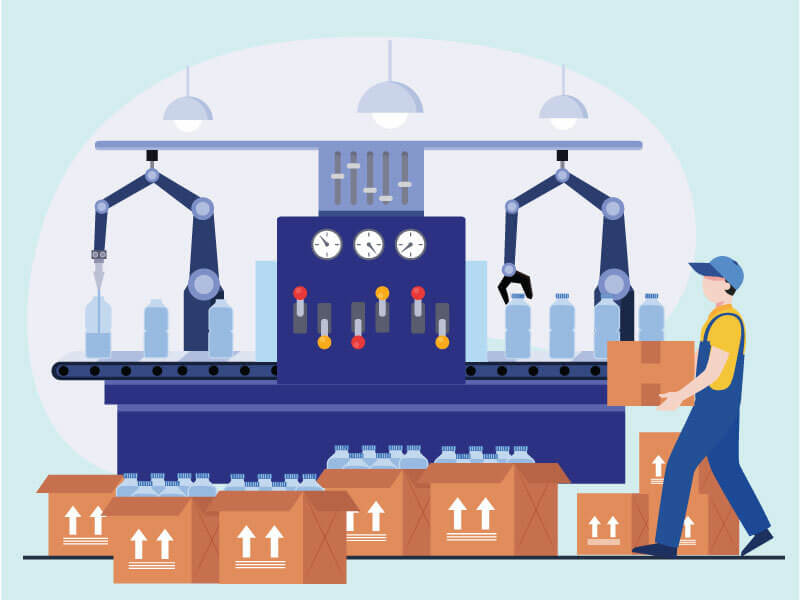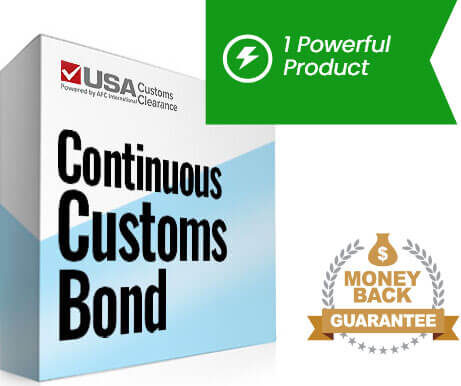
Businesses that need to import bottled water into the U.S. may not know all the ins and outs involved in doing so. Fortunately, we’ve created a list of tips that can help make the process simple.
Key Takeaways
Keep reading to get the full list of things you need to know about importing bottled water to the U.S.
The Harmonized System (HS) four-digit code used to categorize most water packaged for retail sale is 2201. In 2023, the United States imported approximately $886 million worth of these products, with the following five countries accounting for over 92% of that value.

If you want to import water for resale in the United States, one of these countries is most likely going to be your country of origin. When searching for a supplier, you’ll want to make sure their products meet regulations from the U.S. Food and Drug Administration (FDA) and the Environmental Protection Agency (EPA).
Bottled water falls under the Food Safety Modernization Act (FSMA), which contains guidelines and laws followed by the FDA to monitor and inspect water products coming into the U.S.
A few of the important rules water producers must follow include:
These regulations apply to bottled water drinking water for human consumption, including flavored and vitamin-enhanced waters.
It’s best to confirm your source’s manufacturing practices before choosing to import water. If they’ve already been approved by the FDA, this will be a far simpler process than it would otherwise.
Facilities that handle and process bottled water need to be registered with the FDA. This registration must occur before they start producing and exporting consumable goods to the U.S.
This initial registration must be done only once. However, section 415(a)(3) of the FD&C Act, as amended by section 102 of the FSMA, requires your facility to renew its registration with the FDA every other year.
The owner, operator, or agent in charge of a facility, or an individual authorized by one of them, can register the facility with the FDA.

Importing Starts With a Contract.
You Must Pay Import Duties & Taxes for your Goods.
A customs bond is a binding contract required by CBP for any commercial imports valued at $2,500 or more. Bonds are also required when importing bottled water, no matter the shipment’s value, since it’s intended for human consumption.
The bond is confirmation that all taxes and duties will be paid to CBP upon the shipment’s arrival.
Related: How to Get a Customs Bond: A Guide for New Importers
You must also file official prior notice with the FDA when importing bottled water to the U.S.
It’s an additional step that helps ensure the public is protected from a threatened or actual terrorist attack on the U.S. food supply and other food-related emergencies.
For Instructions on the Prior Notice System Interface (PNSI), see Filing Prior Notice. The FSMA aims to ensure the U.S. food supply is safe by shifting the focus of federal regulators from responding to contamination to preventing it in the first place.
This isn’t the only notice you’ll need to file prior to your shipment’s arrival.
If your shipment is arriving via ocean freight, you must submit an ISF Filing prior to its arrival. This system supports the importation of goods via ocean vessels into the United States and reduces the risk of smuggling.
ISF is required to be filed no later than 24 hours before the cargo is loaded onto a ship with a U.S. destination. There are serious consequences for importers that don’t meet the deadline when sending goods to the U.S.
The following information needs to be included when filing the ISF:
Related: What Documents Do I Need to Import and Export?
The HTS includes different product codes, depending on the type of water you plan to import. Each code is different in terms of the import duty that will have to be paid when importing.
Ideally, you should have a licensed customs broker review the product code before importing to ensure the water is categorized correctly. It should be for waters, including natural or artificial mineral waters and aerated waters, not containing added sugar or other sweetening matter nor flavored.

Worried about the Strict Regulations?
Our Customs Experts Will Personally Guide You.
There are various free trade agreements that the U.S. has in place with international trade partners, including the United States-Mexico-Canada Agreement (USMCA), which North American importers can use to their advantage.
The agreement creates more balanced, reciprocal trade, supporting high-paying jobs for Americans and growing the North American economy. It decreases or eliminates tariffs, reducing trade costs, which ultimately lowers retail prices for consumers and increases profits for companies. It also bolsters protections for workers in Mexico.
Depending on the country of origin, your bottled water may also be subject to antidumping and/or countervailing duties (AD/CVD). Dumping happens when a foreign producer sells a product in the U.S. at a price below that producer’s sales price in the country of origin (home market).
Countervailing duties serve a similar purpose. They are applied to goods the U.S. government suspects of benefitting from government subsidies.
Currently, water imported from China is subject to an additional 25% AD/CVD under trade action list three of the Section 301 tariffs established during the Trump presidency and continued during Biden’s administration.
Many importers choose to work with a licensed customs broker when importing bottled water. In the simplest terms, a customs broker is an individual who facilitates international trade by making it easier for people to import things for their business.
There are several positive benefits of partnering with a customs broker. For starters, they can save you time, stress, and, in many cases, they pay for themselves by helping you avoid fines and delays when you’re importing bottled water.
If your shipment is delayed for any reason, a customs broker can also advocate on your behalf for an early release of your cargo.
When you encounter challenges or have questions during importing bottled water, you’ll want to have a trusted and reliable partner ready to help you keep your cool. That’s where we come in.
At USA Customs Clearance, our licensed customs broker will answer all of your import-related questions, giving you the answers you need to succeed.
Our full list of services includes:
Give us a call at (855) 912-0406 or submit a contact form online. We won’t leave you high and dry during the importing process.
 Copy URL to Clipboard
Copy URL to Clipboard
Very Good afternoon to you.
I have a query just like Andy here.
We are exporters from Norway who are interested to export pure water from Norway to the US.
On the safety and quality aspect, we would like to know the various conditions of FDA/EPA in this process.
Warm Regards
Sunil Prabhu
Good afternoon,
There is a potential customer from Seychelles who are interested to export water from the Seychelles to the US. On the safety and quality aspect, I would be grateful to know the various conditions of FDA/EPA in this process.
Regards
Andy Ally
Seychelles Bureau of Standards